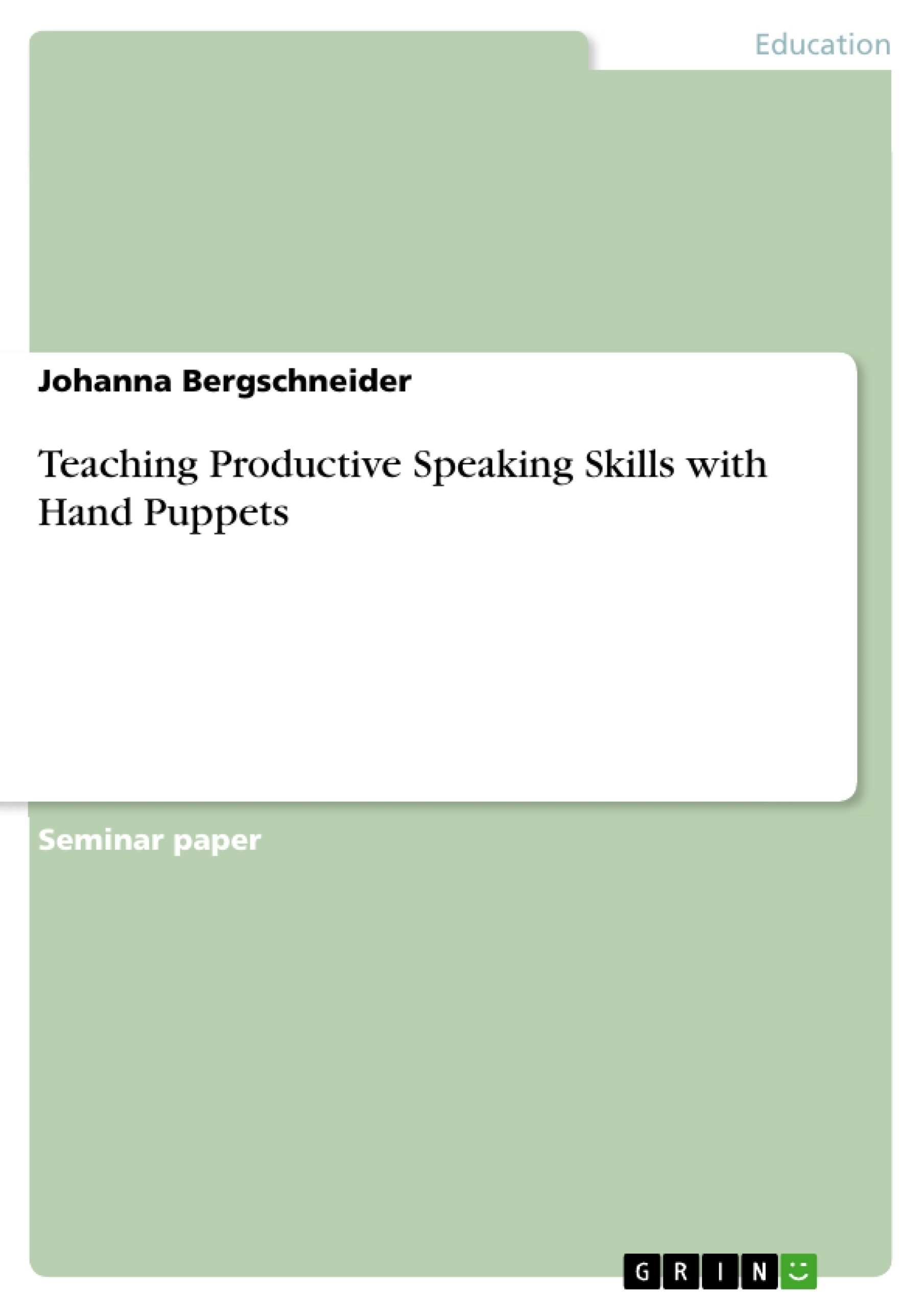Excerpt
Table of contents
1 Introduction
2 Productive Speaking Competence in Inclusive Settings
2.1 Specific Requirements on an Inclusive EFL Classroom
2.2 Speaking Competence in the Curriculum
2.3 Encouraging Productive Speaking Competence in the Inclusive EFL Classroom
2.3.1 Half-open Tasks
2.3.2 Beneficial Language Models
2.3.3 Meaningful Speaking Context
2.3.4 Preparing Spoken Interaction
2.3.5 A Positive Learning Atmosphere
3 Hand Puppetry in Primary School
4 Hand Puppets to Encourage the Productive Speaking Skills in the Inclusive Primary EFL Classroom
4.1 Providing Authenticity and Meaningfulness
4.2 Establishing an Atmosphere that Encourages Speaking
4.3. Evoking Emotional Involvement
5. Use of Hand Puppets in Primary School Books
5.1 Playwayl
5.2 Sunshine Early Start Edition
6 Conclusion
4 Bibliography
Literature
Internet Sources
List of figures
- Quote paper
- Johanna Bergschneider (Author), 2019, Teaching Productive Speaking Skills with Hand Puppets, Munich, GRIN Verlag, https://www.grin.com/document/906418
Publish now - it's free






















Comments